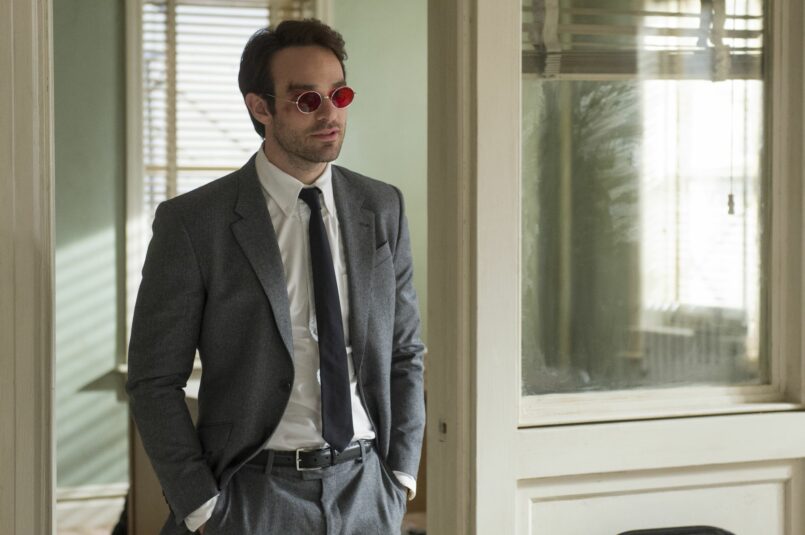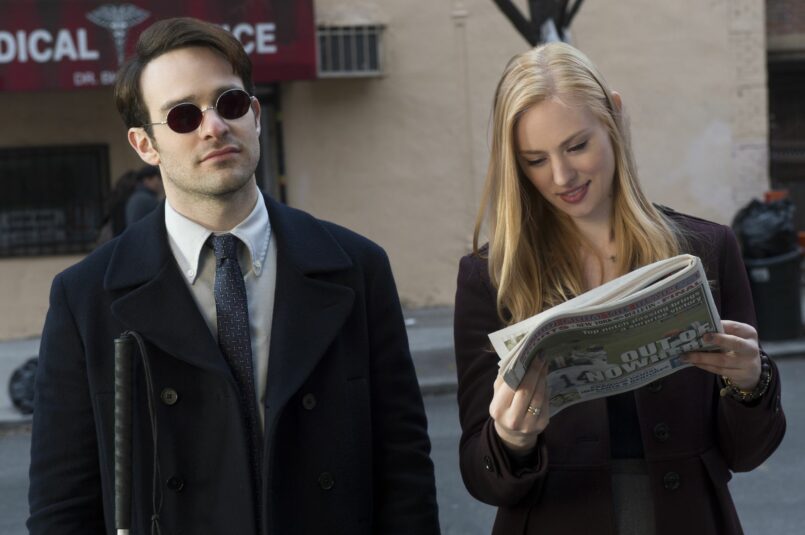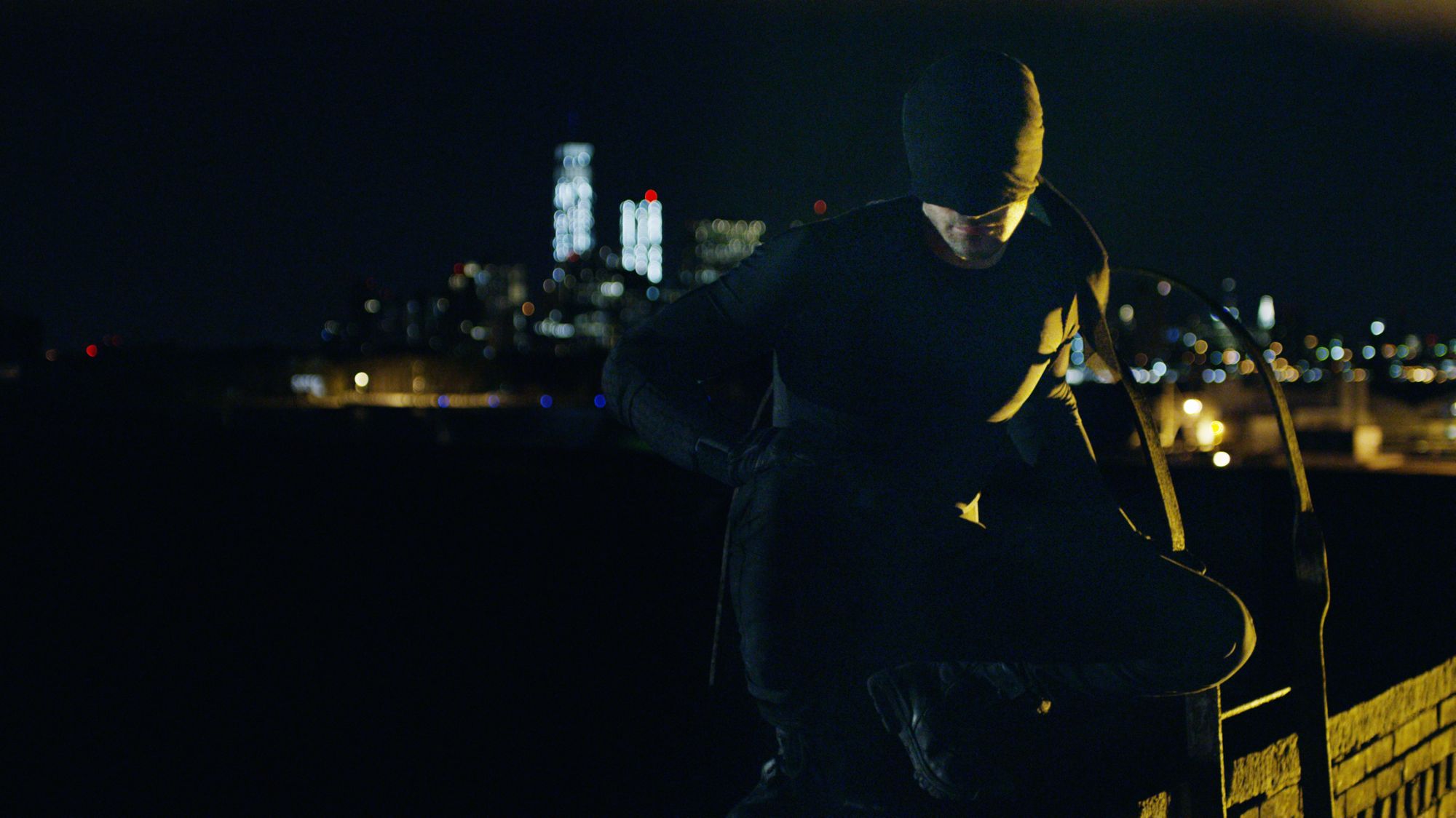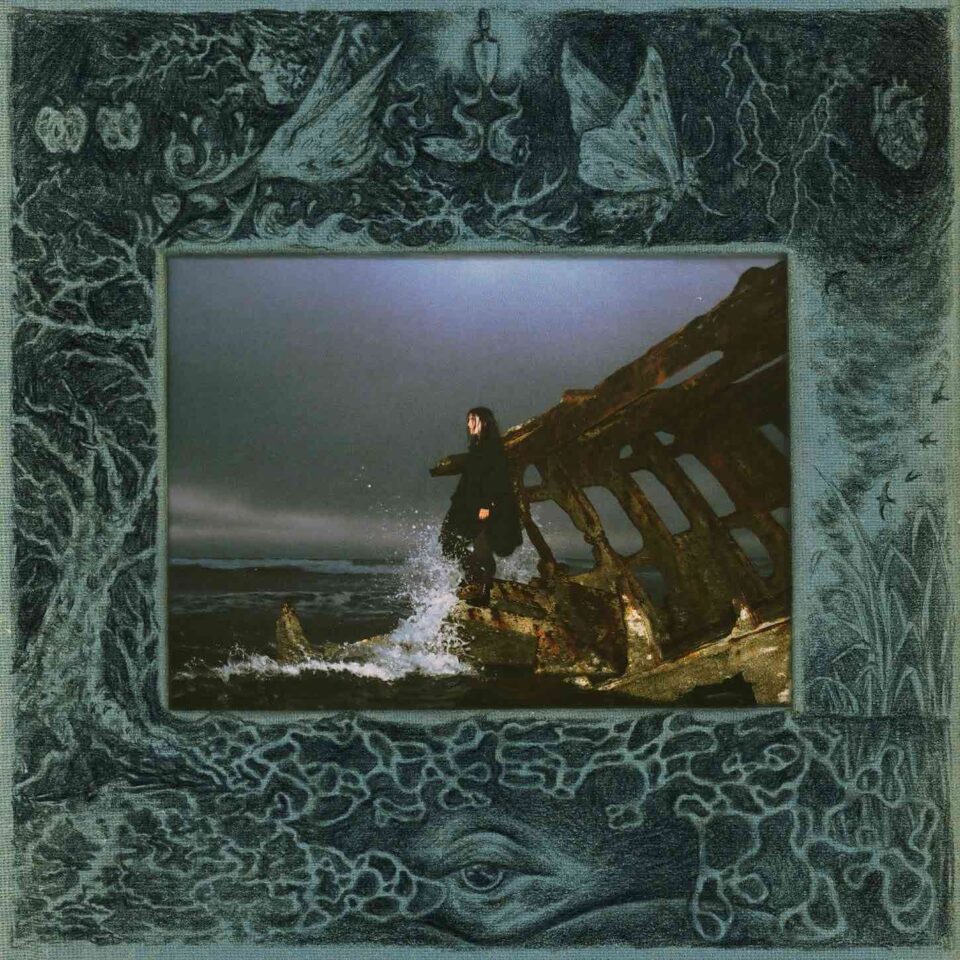“I’m not the bad guy,” The Devil of Hell’s Kitchen (or “the man in black,” depending on who you ask) tells a cop towards the end of the first season of the new Daredevil series. (Our protagonist Matt Murdock—Daredevil’s lawyer alter-ego, if you had no childhood—isn’t Daredevil yet, as this Marvel-sanctioned Netflix show is essentially a thirteen-episode origin story.)
“Then what are you?” the officer responds.

It’s a fair question—good guys aren’t typically as violent as Daredevil (played beyond perfectly here by Charlie Cox), at least not in the Marvel Cinematic Universe. Sometimes, he even gets a little too violent, delivering cringe-worthy beatings that are a lot easier to stomach on a comic book page than they are binge-watched in live-action. And he’s the hero—the villains spill even more blood (and guts, and brains). Marvel’s latest expansion of its television counterpart (following ABC’s Agents of S.H.I.E.L.D. and Agent Carter) is the darkest addition to the MCU by a large margin, but it maintains a strong sense of humor and character, lending it invaluable levity.
Comic book fans will note that the Netflix series takes its cues from Frank Miller’s popular version of Daredevil, in which he emphasized Murdock’s Catholicism and his internal struggle between vigilantism and the law. Miller is widely credited for being the first writer to truly define the character, which, like most superheroes created before 1970, was mostly quip and gimmick before Miller began penning bleaker storylines with higher stakes in 1981. Fortunately, on the other hand, the women of Netflix’s Daredevil are more reminiscent of Mark Waid’s current run on the comic book. Waid is known for his fully developed female characters, with lives and ambitions outside of being superheroes’ love interests and getting murdered—Miller, not so much.

While Karen Page (Deborah Ann Woll) and Claire Temple (Rosario Dawson), the series’ female leads, do end up targets of violence, they are never victims. They hold their own and think for themselves, and are both witty and intelligent. In other words: complete human beings—as is almost every other character on the show. Part of what makes Daredevil so uncharacteristic for Marvel is the amount of time it allows the audience to spend with Wilson Fisk (Vincent D’Onofrio), Hell’s Kitchen’s gentrifying crime-lord and Daredevil’s main adversary. In fact, the show spends more time humanizing Fisk than villainizing him, a decision that heightens the tension, and raises the stakes—when Fisk snaps, he really snaps. D’Onofrio, with his twitchy eccentricities and creepy restraint, is the perfect foil to Cox’s effortless charm, making their dialogue every bit as riveting as the show’s expertly choreographed fight scenes.It is these characters (and Charlie Cox’s endless supply of charisma) that make Daredevil, otherwise unrecognizable as a Marvel property, a logical and necessary addition to the ever-expanding MCU. It is the great writing, engaging fight choreography, and creative solutions to the problems that come with a television budget that make it a terrific show that’s worth savoring one episode at a time. FL







